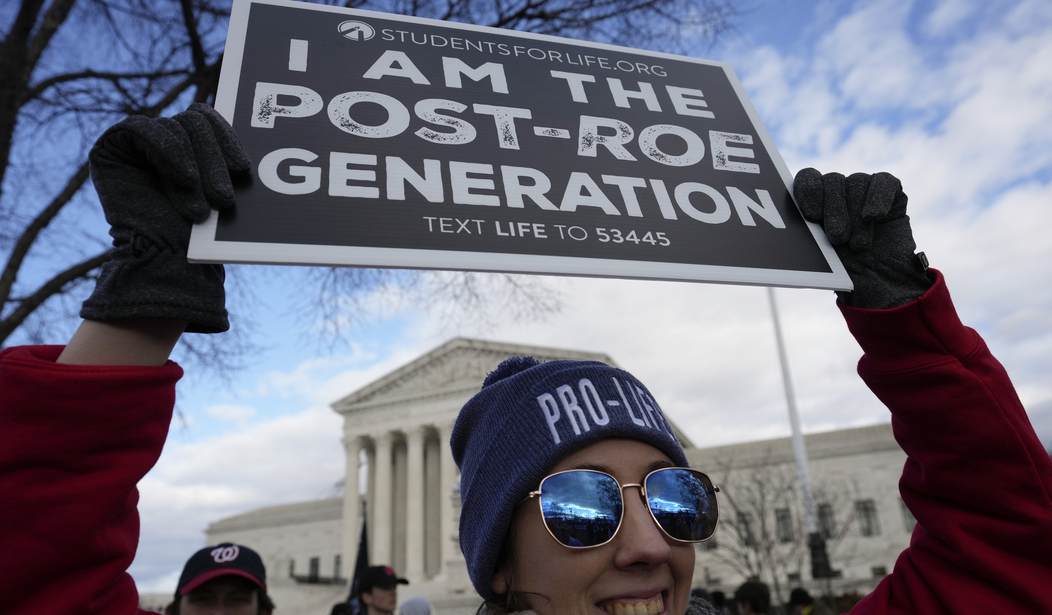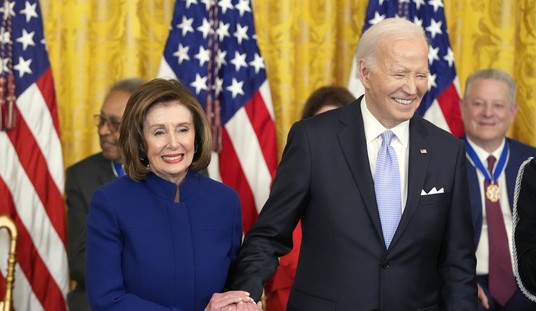As we sit and react to the off-year elections that took place Tuesday night, there’s going to be a lot of doom and gloom projected for the Republicans. Much of it will be overblown, and armchair experts will probably get it all wrong.
If you want an election post-mortem boiled down to a single sentence, here it is: Republicans are losing the messaging war on the abortion issue.
This is a huge problem for the GOP but a fixable one.
I’ve pointed out many times in the past that polls have consistently shown that while Americans generally believe abortion should be legal, there should be limits on it. Support for abortion drops significantly each trimester.
“Six in 10 U.S. adults think abortion should generally be legal in the first three months of pregnancy,” explains Gallup. “However, support drops by about half, to 28%, for abortions conducted in the second three months, and by half again, to 13%, in the final three months.”
Therefore, a gestational limit of 12 to 15 weeks is actually mainstream, which means that Democrats, who support abortion until birth, are the real extremists on the issue. Yet red-state Republicans have often pushed for too much too fast in post-Roe America or allowed full ban trigger laws to go into effect without realizing the consequences.
That’s what happened in Kentucky.
So rest assured, Kentucky isn’t becoming a blue state, but abortion was a factor in that election, as was it in Virginia, where Republicans failed to keep the majority in the House of Delegates and didn’t flip the State Senate as hoped. I suspect this election would have turned out differently if the Kentucky GOP had been smarter in how it handled abortion restrictions. Kentucky had previously passed a 15-week abortion limit, but after the overturning of Roe v. Wade, its trigger ban on virtually all abortions went into effect.
Gov. Andy Beshear clearly capitalized on this and was successful in defining his Republican opponent, Daniel Cameron, as too extreme on the issue. Had a 15-week abortion ban been in place instead of a near-total ban, this election may have turned out differently. Beshear may have vetoed a 15-week ban, but the legislature would have overridden it and Beshear would have found himself on defense on abortion. Consider the precedent. In 2022, Republican governors in states that successfully passed gestational limits in their states were reelected.
Of course, Kentucky wasn’t the only state where abortion played a role in the elections on Tuesday. It was a factor in Virginia as well. It didn’t have to be, either. Earlier this year, polling from the Susan B. Anthony Pro-Life America (SBA) found that 61% of voters in Virginia highly favor a 15-week abortion ban and protecting unborn children who can feel pain and that 60% of “likely voters” who identified as “pro-choice” also supported the 15-week rule. 65% of all Virginia voters also reported being against abortion up until the moment of birth.
For what it’s worth, Youngkin and his Spirit of Virginia PAC clearly understood this but were unable to fend off messaging from Virginia Democrats that a Republican-controlled legislature would bring about an “abortion ban.” Part of the problem may be that many falsely assumed that Youngkin’s 2021 victory was a sign that Virginia was swinging back red. This was a terrible assumption, as Youngkin's underdog victory came in an election that was largely defined by one issue: parental rights.
In Ohio, the so-called Right to Make Reproductive Decisions Amendment passed, largely due to ambiguous language that proponents argued wasn’t nearly as extreme as it was. Again, messaging, messaging, messaging. Democrats have always had a talent for effective messaging on abortion. But, the truth is, in post-Roe America, abortion doesn’t have to be a cudgel beating Republicans into permanent minority status.
I can still remember the outrage back in January when Trump absolved himself of responsibility for the GOP’s poor showing in the 2022 midterm elections and pinned the blame on Republicans for the way they “poorly handled” the “abortion issue.” Many were quick to accuse Trump of attacking pro-lifers, but it was actually just an acknowledgment of a political reality that to win the hearts of Americans on the abortion issue, the pro-life movement has to be careful and understand how voters feel and start with initiatives that can gain popular support first and gain the trust of voters.
Trump appears to get this. Think about it. Today, Trump is beating Biden in various national polls and has a lead in most of the battleground states that will determine the outcome of the election. How is that possible when Trump is responsible for the current ideological makeup of the Supreme Court that overturned Roe v. Wade? Perhaps Trump’s messaging on the issue has been on target.










